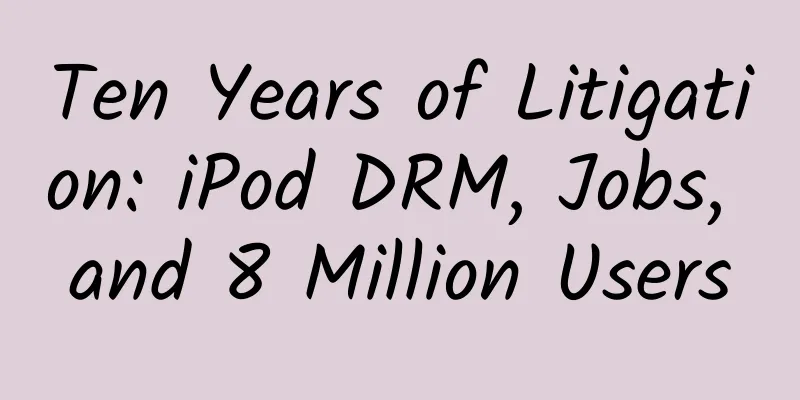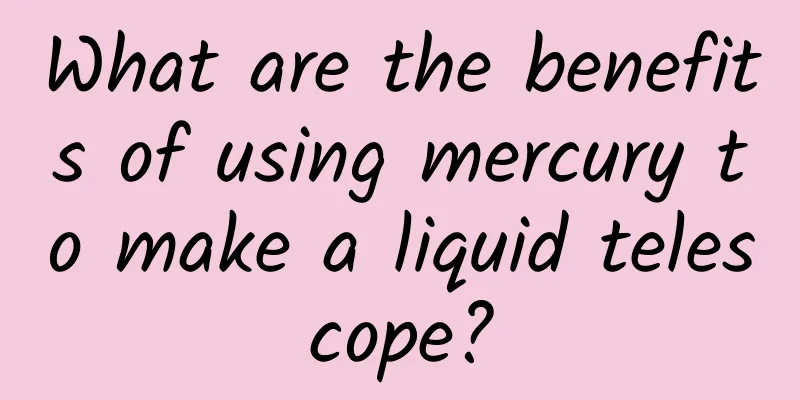Ten Years of Litigation: iPod DRM, Jobs, and 8 Million Users

|
Old iPod users may remember that Apple was very strict about the management of music in iTunes. iPod users could only buy music in the iTunes store, and the music they bought in other music stores could not be played in iPod. This strict measure laid the foundation for the success of the iPod + iTunes model, which can basically be regarded as a prototype of the current iPhone + App Store. Apple has built a closed ecosystem. One of the cornerstones of Apple's construction of the closed iTunes ecosystem was the iPod's DRM digital rights management. DRM is generally used for file encryption and anti-piracy. Apple's DRM technology is called FairPlay. This technology, combined with iPod and iTunes, firmly controls users in Apple's own ecosystem. Other players and music stores cannot cross the DRM moat. By 2009, Apple began to abandon the FairPlay DRM copyright encryption technology in digital music, but similar technology is still used in the App Store. Apple's end of FairPlay DRM copyright encryption in iPod does not mean that the matter is over. Ten years ago, Apple was sued for this move. iPod users filed a class action lawsuit, accusing Apple of violating anti-federal antitrust laws and California unfair competition laws. At that time, Apple gave some compensation to the lawsuit, but the lawsuit is still ongoing. Earlier, Apple's rival in the music market, RealNetworks, had bypassed DRM, allowing users to play music purchased from the Real Music Store on their iPods. Later, Apple and RealNetworks fought over this issue several times, and Apple eventually blocked the path for users to access RealNetworks music from iPads. The focus of the lawsuit was that Apple refused to license the FairPlay technology to other companies, which was suspected of monopoly. In 2006, the famous Free Software Foundation launched an "anti-DRM campaign", calling the technology a flawed design. Apple's iPod became the focus of criticism, and there were even posters satirizing it.
Because of the closed loop formed by iPod + iTunes + DRM, and Apple's continuous technological updates to block the attacks of competitors, Apple has become a frequent visitor to the court. Although by 2009, Apple, which was already a leader in the digital music field, gave up DRM encryption in this market, the lawsuit was still not over. In early 2011, Jobs was even forced to appear in court. Today, a class action lawsuit involving 8 million users once again put Apple on the defendant's bench. These users purchased iPod products from 2006 to 2008 and they are seeking $350 million in damages from Apple. According to Ars Technica, the Apple team had a very heated debate with the plaintiff's lawyers and jurors, and the overall atmosphere was not harmonious. According to the New York Times, Jobs' testimony in court in 2011 and related emails have become the key to this class action lawsuit. Some of the emails have been made public. At that time, Apple's iTunes had some competitors, not only RealNetworks, but also Music Match, which was about to launch its own digital music store. Jobs was worried about this and hoped to cut off the connection between Music Match and iPod. This is not the only court summons Apple has received for suspected monopoly issues. Apple was sued by the U.S. Department of Justice for antitrust violations because of its conspiracy with five major booksellers to raise the price of e-books to fight against Amazon. The previous trial ruled that Apple must pay $450 million to compensate users and pay related litigation costs. Apple chose to appeal again, and the relevant trial will be launched soon. The Verge believes that several hundred million dollars in compensation is nothing for Apple, which has a quarterly profit of $8.5 billion and a market value of $700 billion. However, Apple does not want to spend money to avoid disaster every time, and the right and wrong of these things can only be clarified by the court's decision. |
<<: Apple's new patent: Adjusting the iPhone's center of gravity in mid-air to avoid screen breakage
>>: The only way to program is to be slow
Recommend
Why does eating dumplings raise blood sugar so quickly? Six ways to eat dumplings safely
Dumplings seem to contain meat and vegetables, bo...
Shi Sanxi's training video lecture on "Controlling the Four Divine Beasts to Change Feng Shui"
Shi Sanxi's "Controlling the Four Divine...
Tesla will launch a mini car, Musk said it is building
Tesla has cooperated with RadioFlyer to launch th...
Sniping Samsung, why does Skyworth dare to say that curved LED TVs are a technological regression?
How thin can a TV be? With the launch of Skyworth...
The logic and thinking behind Maimai’s “naked knowledge donation” marketing
The day before yesterday morning, a girl from Mai...
A thousand days of rescue! Who is the owner of Wuwangdun Tomb No. 1?
A 1.92-meter-high drum stand with a phoenix-shape...
A new method to improve the survival rate of Android application processes (Part 2)
[[179903]] Continued from previous article Create...
The secret to making Tik Tok video ads a hit!
How to shoot a good Douyin video with strong sale...
BYD: BYD's cumulative sales of new energy vehicles in the first eight months of 2022 reached 978,800 units, a year-on-year increase of 267.31%
BYD released its August sales report, which showe...
Selling controlling stake in gaming and entertainment for RMB 3.3 billion Will smart cars become NetQin's main line?
When it comes to Internet security software, we h...
My mouth feels astringent after eating cucumbers. Is it pesticide residue?
gossip "The reason why your mouth feels astr...
Facebook promotion plan and traffic diversion skills
Doing these things well can help you get potentia...
Google Glass cannot see the road ahead, where is the future heading?
[[138185]] Google Glass has captured the attentio...
You were an ugly duckling when you were young, and you became a white swan when you grew up. What did you go through in between?
The Spring Festival holiday is over, and handsome...
Do you think it's cool to open the bottle cap with your teeth? "Open" has "teeth" logic!
Friends gathering, family dinner, late night barb...









